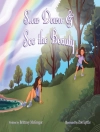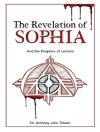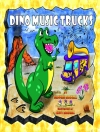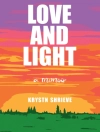Movies offer us images (and usually sounds) that "thr[ow our] nerves in patterns on a screen" (Eliot). In other words, they express the neurological hyperactivity of modern subjects. Films are affect machines, in this respect. Each has its own heartbeat (narrative highs and lows), dramatic expansions and contractions (montage), and changing patterns and light (cinematography). Viewers engage with these affect machines viscerally, such that we are like Charlie Chaplin who dives into the machine in Modern Times. As we move through these affect machines we identify with some characters and empathize with others and, in the process, engage in something dynamic and experiential. When the credits roll and the lights go up, we find ourselves suddenly out of this affect machine and, in many cases, restored, rejuvinated, ready to face (and/or challenge) the world again. In its overdetermined status as a modern art form generated by modern technologies and focused on modern dilemmas (even if the narrative takes place in ancient times, the themes are translated in ways that engage modern viewers), cinema exists in a web-like, rhizomic relationship with modernity. Rhizomes are like converging root systems all tangled together. They are non-hierarchical but interrelated in "random, unregulated networks in which any element may be connected with any other element" (Bogue 107). Films are, themselves, rhizomes of form and content. In addition, they are rhizomes that not only arise out of modernity but also interact with modernity and within individuals in extended web-like relationships. The following chapters looks at films that have made impacts both in the history of film and, more broadly, in historical events of the Twentieth Century. Each chapter explores the ways in which modernity (the socio-historical, economic, and cultural context of the films) intersects with film content (character, plot, and various mise-en-scne elements that are part of the film’s narrative) and with cinematic form (camera angles, shot types, editing, lighting, sound, and other cinematic elements that are not part of the story itself) in web-like, rhizomic relationships. The chapters are organized diachronically, for the most part, following the evolution of cinematic form from 1895 to the present. At the same time, each chapter will consider the diachronic (across linear time) dynamic whereby films influenced their time and vice-versa. By looking at the way audience’s own understanding of characters or events were (and continue to be) influenced by, for instance, German Expressionistic settings or Russian Formalist montage, we can learn a lot about how subjects were (and continue to be) "directed" to see the world and to view themselves in it. By honing this ability to view films critically and consciously through a study of over 20 important films produced from 1895-2013, we can begin to identify the elements that have made film among the most powerful art forms of the 20th century. Table of Contents Introduction Chapter 1 Arts of Exposure: From Still Photography to Way Down East Chapter 2 German Expressionism and The Cabinet of Dr. Caligari: Chapter 3 Irrational Exuberance and the American Dream in Post-WWI American Melodrama: The Kid and The Jazz Singer Chapter 4 Formalism and Surrealism: Exposing Cuts in Battleship Potemkin and Andalusian Dog Chapter 5 From Mass Hypnosis to Mass Genocide: Triumph of the Will and Night and Fog Chapter 6 Restorative Fictions and the Convulsive Realities They Obscure: Stagecoach and Dakota 38Chapter 7 Deep Focus in a Hall of Mirrors: The Hollow Core of Citizen Kane Chapter 8 Double Vision: The Truth about Lies in Alfred Hitchcock’s Shadow of a Doubt and Maya Deren’s Meshes in the Afternoon Chapter 9 Melodrama and Modernism: Chapter 10 Mirrors and Masks in Clo from 5-7 and Black Girl Chapter 11 (Mis)representations and (Re)presentations of Race in Crash and 12 Years a Slave
Deirdre Flynn & Garry Leonard
Nerves in Patterns on a Screen [EPUB ebook]
An Introduction to Film Studies
Nerves in Patterns on a Screen [EPUB ebook]
An Introduction to Film Studies
यह ईबुक खरीदें और 1 और मुफ़्त पाएं!
भाषा अंग्रेज़ी ● स्वरूप EPUB ● ISBN 9780987806246 ● प्रकाशक Flynnard ● प्रकाशित 2014 ● डाउनलोड करने योग्य 3 बार ● मुद्रा EUR ● आईडी 3596340 ● कॉपी सुरक्षा Adobe DRM
एक DRM सक्षम ईबुक रीडर की आवश्यकता है












